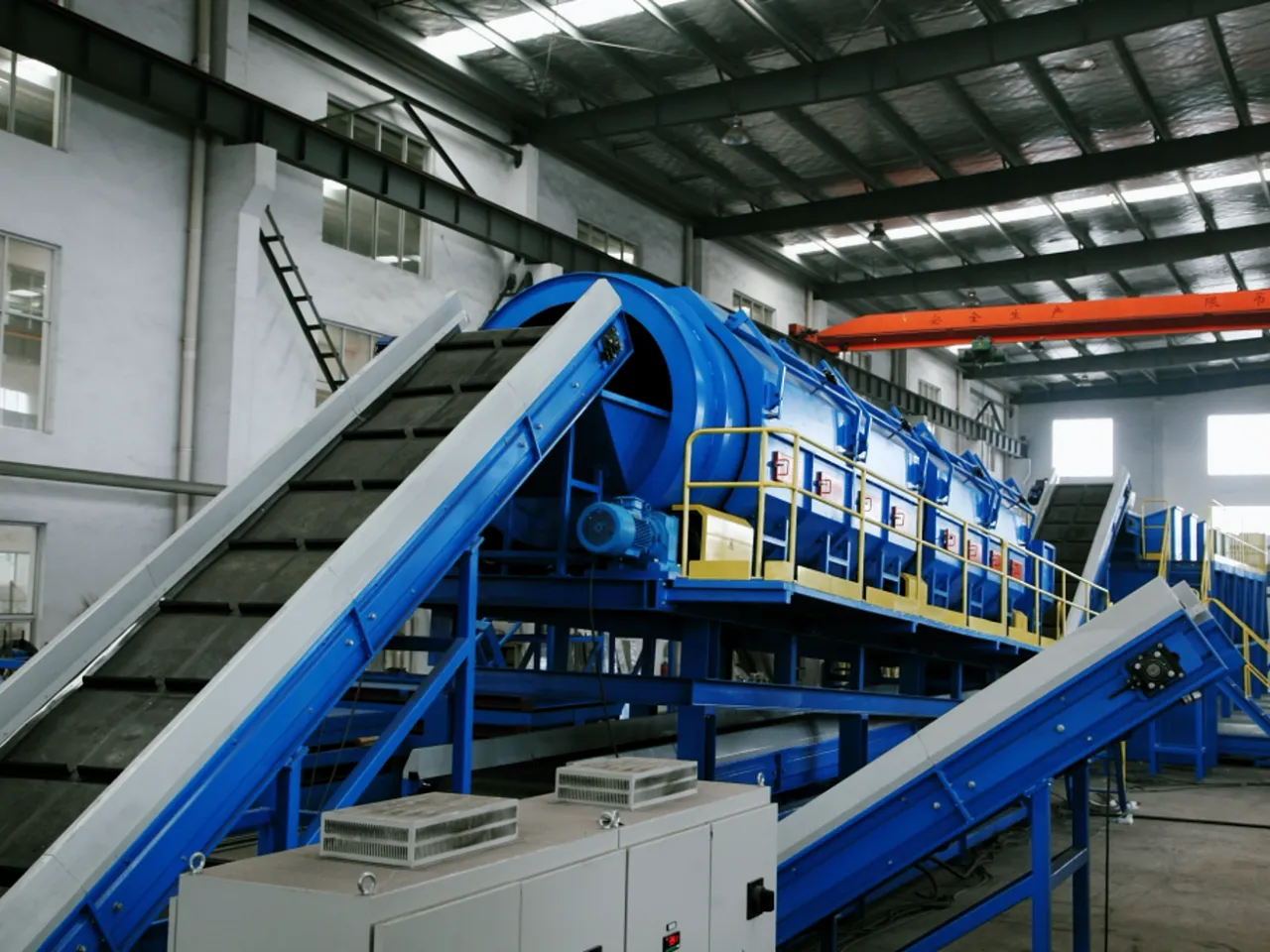In response to the growing challenges of waste management and environmental degradation, Municipal Solid Waste (MSW) sorting machines have emerged as pivotal technologies. They efficiently sort and manage large volumes of waste in urban areas, separating recyclable and reusable materials from non-recyclable waste, thus promoting sustainability.
What is an MSW Sorting Machine?
An MSW sorting machine is designed to handle a variety of waste types, including organic matter, plastics, metals, glass, and paper. It is engineered to reduce the amount of waste sent to landfills by sorting and segregating materials, thereby facilitating recycling efforts and resource recovery.
Key Components and Functions
- Chain Waste Conveyor:
- Transports heavy waste loads, setting the foundation for efficient sorting in facilities.
- Bag Breaker:
- Opens waste bags to expose their contents, ensuring effective sorting of bagged waste materials.
- Trommel Screen:
- Separates materials by size through a rotating drum, commonly used in mineral processing and solid waste management.
- Magnetic Separator:
- Extracts magnetic materials from waste streams, ensuring better material purity for recycling.
- Eddy Current Separator:
- Separates non-ferrous metals like aluminum and copper, critical for efficient metal recovery.
- Vibrating Screen:
- Separates materials by size through a vibrating mesh, aiding in accurate material classification.
- Ballistic Separator:
- Divides waste based on density, shape, and size, improving the separation of mixed materials.
- Air Separator:
- Uses airflow to separate lighter materials from heavier ones, improving sorting efficiency.
- Manual Sorting Room:
- Allows operators to manually sort materials that require human oversight for accuracy.
- Optical Sorter:
- Uses sensors to sort materials based on optical properties, significantly boosting sorting efficiency.
- Waste Baler:
- Compacts waste into bales, reducing volume and facilitating easier transportation and storage.
Utjecaj na okoliš i gospodarstvo
MSW sorting machines contribute to environmental protection by promoting higher recycling rates and decreasing landfill use. Economically, these machines support the recycling industry, generate employment opportunities, and enable the sale of recyclable materials, providing additional revenue streams.
Challenges and Future Trends
- Challenges:
- Varying waste compositions, contamination in waste streams, and operational costs remain key challenges.
- Future Trends:
- Advancements in automation, AI integration, and more adaptable sorting technologies are likely to improve efficiency and accuracy in waste management.
Zaključak
MSW sorting machines are vital to modern waste management, facilitating efficient waste segregation and recycling. By reducing landfill reliance and supporting sustainable resource management, these machines play a crucial role in addressing urban waste challenges and promoting a cleaner environment. As cities continue to grow, their role in sustainable waste management will only become more essential.

UPITI
Kako biste saznali najnovije cijene i rokove isporuke, pošaljite nam poruku putem donjeg obrasca.



